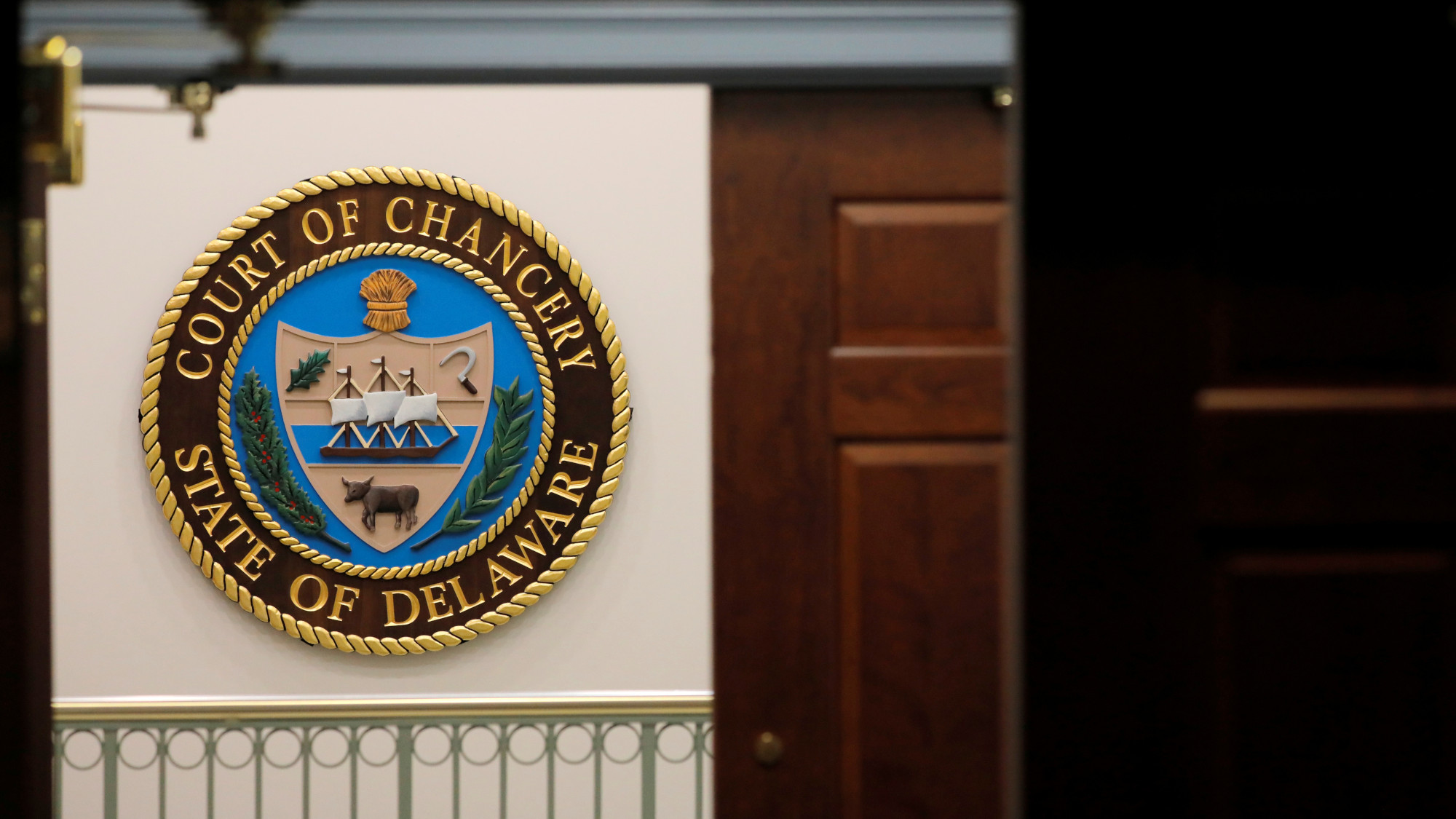Texas vs. Delaware: See you in court
Delaware risks losing its corporate dominance as companies like Tesla and Meta consider reincorporating in Texas

A free daily email with the biggest news stories of the day – and the best features from TheWeek.com
You are now subscribed
Your newsletter sign-up was successful
Delaware is in a battle to keep our place on the corporate map, said Ben duPont in the Wilmington News Journal. More than two-thirds of the companies in the S&P 500 are incorporated in the nation’s second-smallest state, including Amazon, Google, and Coca-Cola. The primary reason is that we have a separate business court system, “where disputes are decided by judges with extensive experience in corporate law.” These judges—known as chancellors in the Delaware Court of Chancery—have “been the gold standard of fairness and justice for over 100 years.” But in recent months, since Tesla reincorporated in Texas, other companies, like Meta, are exploring similar changes. Delaware now “needs to compete for the corporation business,” or we stand to lose over “$2 billion in annual revenue, more than a third of our state budget.”
Sorry, Delaware, but you blew it, said Texas governor Greg Abbott in The Wall Street Journal. Delaware’s Chancery Court was indeed “a model for the country.” But the state has “squandered its inheritance” with “increasingly unpredictable theories of liability.” That’s why businesses are running for the hills. Tesla left after a Delaware chancellor, Kathaleen McCormick, issued a surprising ruling against Elon Musk last year in favor of shareholders that sued to strike down his $56 billion pay package—ignoring the fact that he had produced $600 billion in shareholder return. The court used to understand its role was not to “subject routine business decisions to second-guessing.” That’s why Texas has set up a business court of our own, and we’re open for business.
Yes, the Tesla ruling changed the calculus on Delaware, said Matt Levine in Bloomberg. It was unexpected—exactly what businesses don’t want from a business court—and “bad for controlling shareholders.” But in general, Delaware is not “super-unfriendly to corporate management.” The long record of corporate case law in Delaware means “there are a lot of precedents saying what is and isn’t allowed.” And if corporations want predictability, then Texas’ business court, which allows jury trials, isn’t exactly the answer for corporations that must dread the prospect of a “merger being stopped by the unpredictable decision of some random laypeople.”
The Week
Escape your echo chamber. Get the facts behind the news, plus analysis from multiple perspectives.

Sign up for The Week's Free Newsletters
From our morning news briefing to a weekly Good News Newsletter, get the best of The Week delivered directly to your inbox.
From our morning news briefing to a weekly Good News Newsletter, get the best of The Week delivered directly to your inbox.
Whether or not corporations move, this might be the end of what made the Delaware courts special, said Sujeet Indap in the Financial Times. The new governor and legislative allies “are quickly seeking to enact sweeping changes to the law this spring to make traditional shareholder litigation much more difficult to bring.” Judges, too, will lose much of their discretion. Delaware will keep its revenue—but the rest of the country may lose the corporate “policing” that Delaware’s courts have provided.
A free daily email with the biggest news stories of the day – and the best features from TheWeek.com
-
 Why is the Trump administration talking about ‘Western civilization’?
Why is the Trump administration talking about ‘Western civilization’?Talking Points Rubio says Europe, US bonded by religion and ancestry
-
 Quentin Deranque: a student’s death energizes the French far right
Quentin Deranque: a student’s death energizes the French far rightIN THE SPOTLIGHT Reactions to the violent killing of an ultraconservative activist offer a glimpse at the culture wars roiling France ahead of next year’s elections
-
 Secured vs. unsecured loans: how do they differ and which is better?
Secured vs. unsecured loans: how do they differ and which is better?the explainer They are distinguished by the level of risk and the inclusion of collateral
-
 Health insurance: Premiums soar as ACA subsidies end
Health insurance: Premiums soar as ACA subsidies endFeature 1.4 million people have dropped coverage
-
 Anthropic: AI triggers the ‘SaaSpocalypse’
Anthropic: AI triggers the ‘SaaSpocalypse’Feature A grim reaper for software services?
-
 Currencies: Why Trump wants a weak dollar
Currencies: Why Trump wants a weak dollarFeature The dollar has fallen 12% since Trump took office
-
 Elon Musk’s starry mega-merger
Elon Musk’s starry mega-mergerTalking Point SpaceX founder is promising investors a rocket trip to the future – and a sprawling conglomerate to boot
-
 TikTok: New owners, same risks
TikTok: New owners, same risksFeature What are Larry Ellison’s plans for TikTok US?
-
 Will SpaceX, OpenAI and Anthropic make 2026 the year of mega tech listings?
Will SpaceX, OpenAI and Anthropic make 2026 the year of mega tech listings?In Depth SpaceX float may come as soon as this year, and would be the largest IPO in history
-
 Leadership: A conspicuous silence from CEOs
Leadership: A conspicuous silence from CEOsFeature CEOs were more vocal during Trump’s first term
-
 Ryanair/SpaceX: could Musk really buy the airline?
Ryanair/SpaceX: could Musk really buy the airline?Talking Point Irish budget carrier has become embroiled in unlikely feud with the world’s wealthiest man